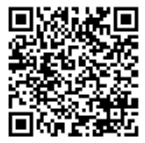The Influencer Ecosystem:
Influencers who operate in the male self-improvement space can subtly—or overtly—promote harmful gender stereotypes and misogynistic narratives. Framed as “truth-telling” or “breaking societal taboos,” their content often criticises feminism, portrays women as manipulative or inferior, and blames women for perceived male disempowerment.
Introduction:
Self-perpetual radicalisation refers to a process whereby individuals adopt increasingly extreme beliefs through self-directed online consumption, often without real-world contact with extremist groups. One of the most alarming areas of this phenomenon is the rise of misogynistic ideologies fuelled by certain social media influencers, particularly in the realms of male self-help, fitness, dating advice, and “alpha male” content.
Radicalisation Pathways:
- Echo Chambers: Followers are drawn in by surface-level advice (e.g., fitness or financial success) and gradually exposed to more extreme content, creating an ideological funnel.
- Algorithmic Exposure: Social media platforms recommend increasingly provocative content, reinforcing biased worldviews and reducing exposure to dissenting perspectives.
- Us vs Them Narratives: Misogynistic influencers frame gender dynamics as a ‘zero-sum game’, cultivating resentment toward women and championing male dominance.
- Parasocial Loyalty: Young, impressionable males may form one-sided emotional bonds with influencers, accepting their views without scrutiny.
Mechanisms of Radicalisation:
- Algorithmic Exposure &v Reinforcement: Platforms such as Snapchat, YouTube, TikTok, and Instagram reward engagement, promoting controversial or emotionally charged content that often leans toward extremism.
- Us vs. Them Narratives: Misogynistic influencers frame gender dynamics as a ‘zero-sum game’, cultivating resentment toward women and championing male dominance
- Community Formation: Followers of influencers may form tightly knit online communities, reinforcing in-group/out-group dynamics and insulating members from counterarguments.
- Narrative Control: Influencers create compelling, oversimplified narratives that blame complex problems on scapegoats or conspiracies.
- Identity Fusion: Followers often develop parasocial (online ‘hero’) relationships with influencers, aligning their identity and values with them. This fosters loyalty and receptiveness to radical views.

Impacts:
- Normalisation of Misogyny: Repeated exposure to demeaning or hostile views toward women desensitizes audiences and makes sexism socially acceptable in some circles.
- Real-World Harm: Online misogyny is linked to increased harassment, abusive behaviour, and in extreme cases, gender-based violence and hate crimes.
- Incel and Red Pill Subcultures: These online movements thrive on influencer rhetoric that vilifies women and idealizes patriarchal dominance, often wrapped in pseudoscientific or self-help language.
Case Examples:
- Influencers promoting the “Red Pill” ideology, which asserts women are inherently deceitful and that men must reclaim power through control and emotional detachment.
- Lifestyle gurus attacking feminism and encouraging followers to pursue “high-value man” status by subordinating women.
- Content creators minimizing consent or mocking female autonomy under the guise of humour or “free speech.”
Conclusion:
The intersection of influencer culture and online misogyny is a potent driver of self-perpetual radicalisation. Addressing it requires a multi-pronged approach: stronger platform accountability, early media literacy education, and the promotion of healthy, inclusive models of masculinity. Left unchecked, influencer-driven misogyny will continue to breed resentment, polarisation, and violence under the guise of entertainment or empowerment.
QR CODE FOR DETAILS CURRENT ONLINE SAFETY WORKSHOPS 
🌐 Presented by: Jonathan Taylor MSc
www.onlinesafety4schools.co.uk
📧 onlinesafety4schools@ymail.com